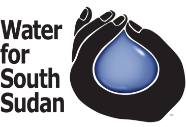Our Work & the SDGs: Part 2
We are dedicated to transforming lives and communities by advancing gender equality, promoting economic growth, and fostering sustainable practices, all while aligning our efforts with the United Nations Sustainable Development Goals 5 through 10. Continue reading to learn more about how water is at the heart of our mission and efforts.
Goal 5: Gender Equality
Approximately 40% of households in South Sudan have access to essential drinking water sources. As a result, women lose productivity from other domestic duties because they spend most of their time collecting water.
This especially rang true for Achor, who lived in Abilnyang in rural South Sudan after fleeing conflict stemming from civil war in her birth village. After walking to her new home village, she walked for hours daily to fetch water from a stagnant, bacteria-infested puddle. She feared the sicknesses she and her family frequently get from drinking this water and that the puddle would dry up one day, forcing them to move again. With a well in her village, Achor and her family can stay in Abilnyang and start investing in their home and community. She also spends her time on more productive activities, like weaving baskets to sell at the local market for income.
Goal 6: Clean Water and Sanitation
Five million people in South Sudan live without access to safe water and sanitation services daily. We are rooted in providing access to clean, safe water and improving hygiene and sanitation practices in areas of great need. Over the past 21 years, our efforts have evolved to provide hygiene trainings, rehabilitate older wells, construct water storage and distribution systems and latrines, and serve as the appointed WASH responder for internally displaced people (IDP) camps and newly established refugee camps.
We can’t help but reminisce about our first latrine constructed at the Zogolona Primary School, which serves 800 students and teachers. Now, with access to a latrine, the school day is not interrupted, and learning is the main focus.
Goal 8: Decent Work and Economic Growth
After WFSS installed a Water Storage & Distribution System in her community, Ngeeth took out a microloan to secure a school certificate for her daughter. She shares her excitement, stating, “My daughter is now happy, too. As the goodness of this borrowing is, I managed to get the certificate. The change will be good because my children will learn and have a bright future; I thank Water for South Sudan for providing us with clean water.”
Goal 10: Reduced Inequalities
Access to clean water is a fundamental human right. In South Sudan, ongoing conflict, economic instability, and inadequate infrastructure have exacerbated disparities in water access, particularly affecting marginalized communities, including women and girls.
These inequalities are also reflected in health outcomes, as limited access to safe drinking water contributes to the prevalence of waterborne diseases, disproportionately impacting vulnerable populations. Furthermore, when communities cannot secure clean water, their ability to engage in economic activities is hampered, perpetuating cycles of poverty and exclusion. Addressing the water crisis in South Sudan is essential not only for promoting health and well-being but also for fostering inclusive growth and reducing inequalities.
We're excited to share more about our ongoing dedication to advancing the Sustainable Development Goals, and we invite our supporters to follow us on social media and bookmark our blog for the latest updates on our progress and initiatives.




